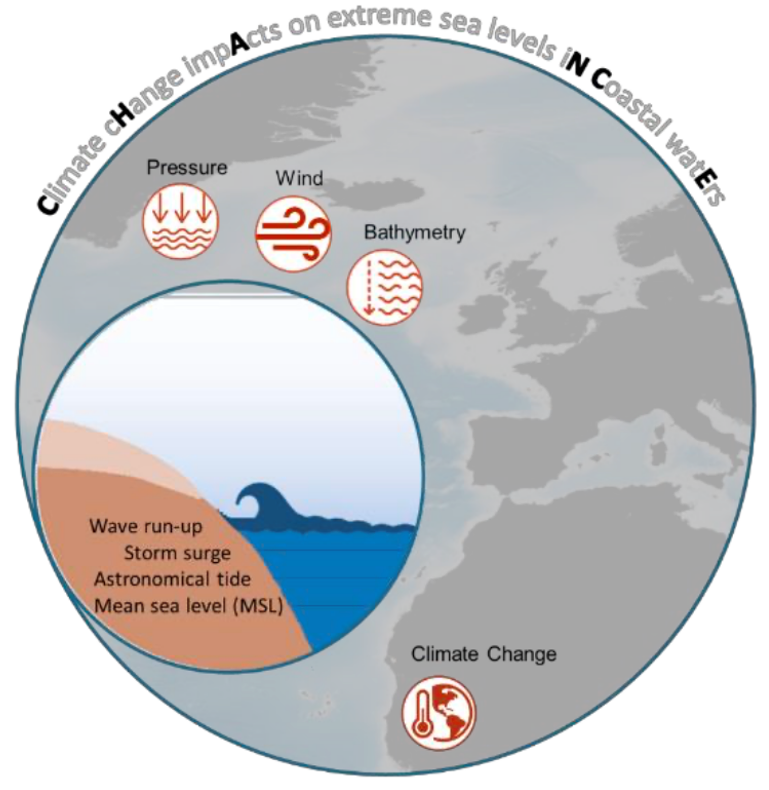CHANCE - Climate cHange impActs on extreme sea levels iN Coastal watErs
Coastal flooding is driven by extreme sea levels (ESL), which are composed of mean sea level (MSL), astronomical tide, storm surges and waves forced by low pressure systems and strong winds (Figure 1). ESL will increase in the next decades, having both environmental and socioeconomic impacts, especially in low-lying coastal areas. Global modelling of ESL has evolved rapidly and shows increasing skill to predict ESL and their sensitivity to climate variability. However, there are three main challenges that form a major obstacle to further enhance the predictability of ESL in a changing climate:
- Extremes are prone to large uncertainties due to the combination of relatively short simulation lengths with large natural variability;
- Global climate models have large spatial biases, undermining the confidence in projected change in the frequency of extremes;
- Global hydrodynamic models lack the level of detail and complexity required to be relevant at regional scales.
To address these three challenges, the CHANCE project will develop an innovative hybrid framework that combines high resolution global climate and hydrodynamic models with tailored statistical and machine learning approaches. With this new framework CHANCE will improve the scientific understanding of ESL variability across spatiotemporal scales with its two main research objectives:
- Unravelling the driving mechanisms that cause ESL across different spatiotemporal scales in present-day climate;
- Evaluating how ESL and the driving mechanisms may evolve under future climate change.
CHANCE consists of two PhD projects, one at TU Delft and the other at VU Amsterdam. The study at TU Delft is focused on understanding how global ESL variability translates to regional scales. This will be done by downscaling the global ESL projections to regional scales using novel hybrid methods, through multiple case studies that represent different environmental settings around the world. The physical aspects (atmospheric, oceanographic, and geomorphological) of regional ESL generation and propagation will be investigated by identifying different driving mechanisms of ESLs and analysing their spatiotemporal variability, co-variability, and projections under future climate conditions.
Partners
- Technische Universiteit Delft
- Vrije Universiteit Amsterdam
- Deltares
- IHE Delft Institute for Water Education
- Koninklijk Nederlands Meteorologisch Instituut (KNMI)
- University of Twente
- University of Colorado
- Duke University
- University of South Florida
- MetOffice
- University of Cantabria
Contact
If you have any questions about the CHANCE project, please contact Mia Pupić Vurilj (M.PupicVurilj@tudelft.nl). The project is supervised by José A. Á. Antolínez (J.A.A.Antolinez@tudelft.nl)



